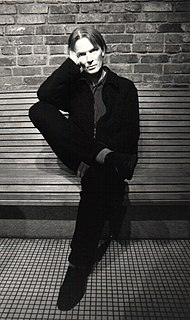A Quote by Ron Padgett
Maybe lurking in my unconscious was the idea that when someone's collected poems are published it means that the poet is dead. I found myself looking at my work as if I were at my own funeral.
Related Quotes
I was starting to wonder if I was ready to be a writer, not someone who won prizes, got published and was given the time and space to work, but someone who wrote as a course of life. Maybe writing wouldn't have any rewards. Maybe the salvation I would gain through work would only be emotional and intellectual. Wouldn't that be enough, to be a waitress who found an hour or two hidden in every day to write?
There are definitely connections between poems, but I wanted each to stand on its own. I guess it goes back to the idea of trying to zoom in and out, and to modulate, so there are different ways of looking at any experience for the reader. Even having short poems and long poems - there has to be some kind of variation in the experience of reading as a whole.
When Emily Dickinson's poems were published in the 1890s, they were a best-seller; the first book of her poems went through eleven editions of a print run of about 400. So the first print run out of Boston for a first book of poems was 400 for a country that had fifty million people in it. Now a first print run for a first book is maybe 2,000? So that's a five-time increase in the expectation of readership. Probably the audience is almost exactly the same size as it was in 1900, if you just took that one example.







































